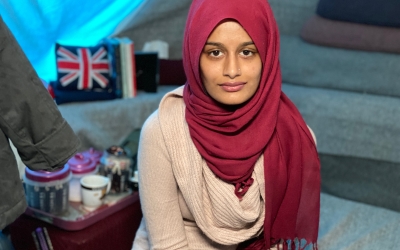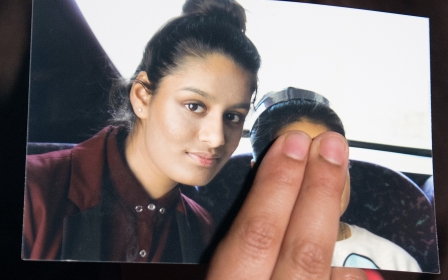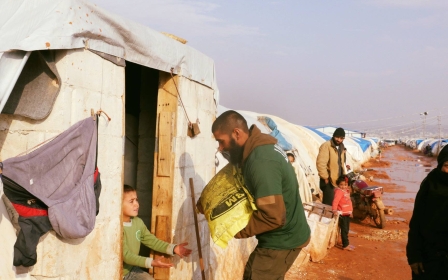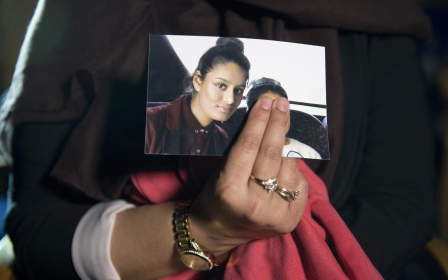For UK Muslims, it is one law for them, and another for the 'natives'
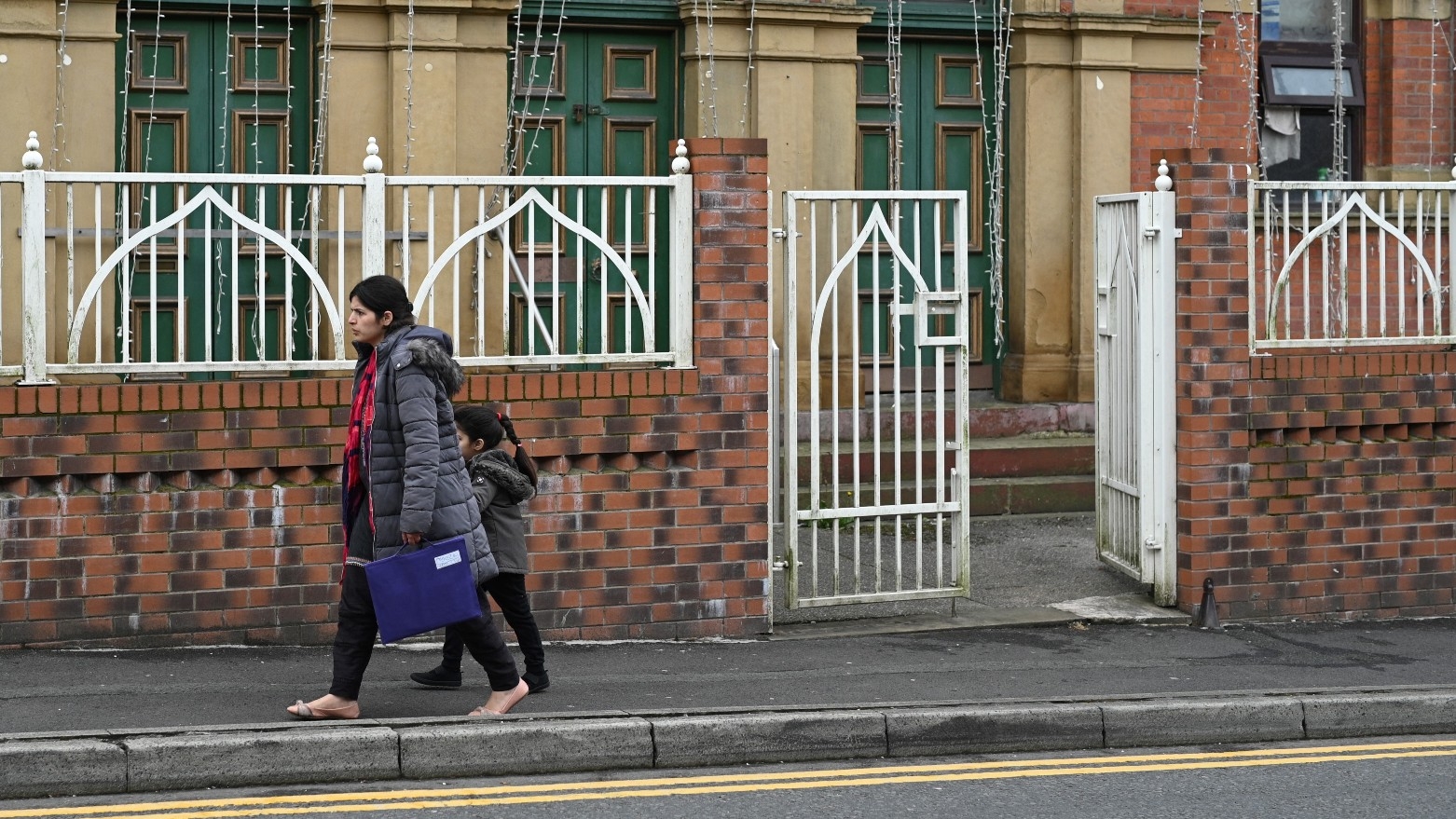
In a 2019 interview, a British reporter presented Shamima Begum with a letter from the Home Office informing her that her British citizenship was being revoked. “I don’t know what to say,” she replied, staring at the letter. She added that the news was “heartbreaking” and “unjust” for her and her son.
The journalist pushed back, saying Begum did this to her son, presumably meaning that her decision to travel to Syria to join the Islamic State group had led to the British government’s move. What should have been a private affair became a national spectacle; a Home Office deprivation order was read on TV, while the camera focused on Begum to capture her response. It was an extraordinary example of how Britain pushes back against those suspected of terrorism.
For British Muslims travelling across borders, the idea of 'passport privilege' is a fragile claim that can too quickly be shattered
As a result, Begum was left stateless, despite claims by the British government that she could acquire Bangladeshi citizenship due to her family’s heritage. Her citizenship deprivation was one of many to come out of the “war on terror”. Questions remain over the Home Office’s exceptional powers to revoke her citizenship, especially given recent revelations that Begum was trafficked by a spy working for the Canadian government.
Begum’s case made clear that citizenship deprivation was legally possible if an individual could acquire secondary citizenship, thus avoiding statelessness. It further made clear that citizenship is a privilege, not a right - and one that must be earned for racialised minorities, particularly Muslims, as they navigate a burden of suspicion.
A recent report by the Institute of Race Relations sets out how UK citizenship and powers of revocation create a two-tiered system in which Muslims are predominately affected. This unequal system effectively treats Muslims as “second-class citizens”, the report shows.
New MEE newsletter: Jerusalem Dispatch
Sign up to get the latest insights and analysis on Israel-Palestine, alongside Turkey Unpacked and other MEE newsletters
Chilling powers
The report focuses on the dangers of the Nationality and Borders Bill, and in particular Clause 9, added late last year, which stipulates that British citizens can be deprived of their citizenship without notice if it is in the interests of “national security”. But as the report sets out, there is a historical trend in which citizenship deprivation has been used strategically by the state to distinguish between “natives” (read: white British people) and communities of colour.
Furious parliamentary debate last year over Clause 9 reflected public sentiment that citizenship deprivation was both unethical and draconian. During the debate, Labour MP Imran Hussain asked in reference to then-Prime Minister Boris Johnson: “When is he coming for me?” In response, Johnson told Hussain to “look at the Conservative front bench today”, highlighting the optics of diversity in light of these chilling deportation powers.
Threats of citizenship deprivation are all too familiar for those swept up amid the haunting presence of the “war on terror”. As outlined in the report from the Institute of Race Relations, since 2002, more than 200 citizenship deprivation orders have been granted, mainly on national security grounds. In 2017 alone, there were 104 such orders, one of which affected Muslim aid worker Tauqir Sharif, who was stripped of his nationality amid allegations (which he denied) that he had indirect links to al-Qaeda and that his presence in the UK posed a risk to “national security”.
Although rendering an individual stateless contravenes international law, the UK government contends that citizenship can be revoked when the affected individual can obtain another citizenship through familial ancestry. For Sharif, because his father was of Pakistani heritage, the government maintained he could claim Pakistani citizenship, even though he could not speak Urdu proficiently.
Urgent question
There is an urgent question about belonging and where one calls home, as citizenship deprivation is arguably a life of exile, where one is stripped of all rights and protections. While the families of those affected might have once been part of the so-called great British empire, Britain itself is the only place they know as home.
As the government refused to include evidence for its claims against Sharif, he - along with countless others - was referred to the Special Immigration Appeals Commission, which operates under the illusion of democracy through its use of secret evidence.
As human rights groups have warned, Clause 9 is the tip of the iceberg. Regardless of whether an individual is notified of their citizenship removal, this draconian measure seeks to strip people of their humanity. The security infrastructure of the “war on terror” manipulates the law and citizenship powers to determine where one can be detained, whether one can be killed in drone strikes, or whether one can be rendered to another country.
The argument that citizenship has always been a level playing field that provides innumerable protections is a claim we must approach cautiously. As the Windrush scandal of 2017 revealed, citizenship is reduced to bits of paper that, if lost, can render one “un-British”. For British Muslims travelling across borders, the idea of “passport privilege” is a fragile claim that can too quickly be shattered when border police detain them under Schedule 7 orders.
As Sharif’s case shows, the burden of suspicion is cast far and wide, and the trail that connects one to terrorism becomes murkier as it expands. While the UK government claims that citizenship deprivation applies only to a small handful of people, or that measures such as Prevent target “all forms of terrorism”, the reality is stark: for racialised communities, it is one law for them, and another for the “natives”.
The views expressed in this article belong to the author and do not necessarily reflect the editorial policy of Middle East Eye.
Middle East Eye delivers independent and unrivalled coverage and analysis of the Middle East, North Africa and beyond. To learn more about republishing this content and the associated fees, please fill out this form. More about MEE can be found here.




